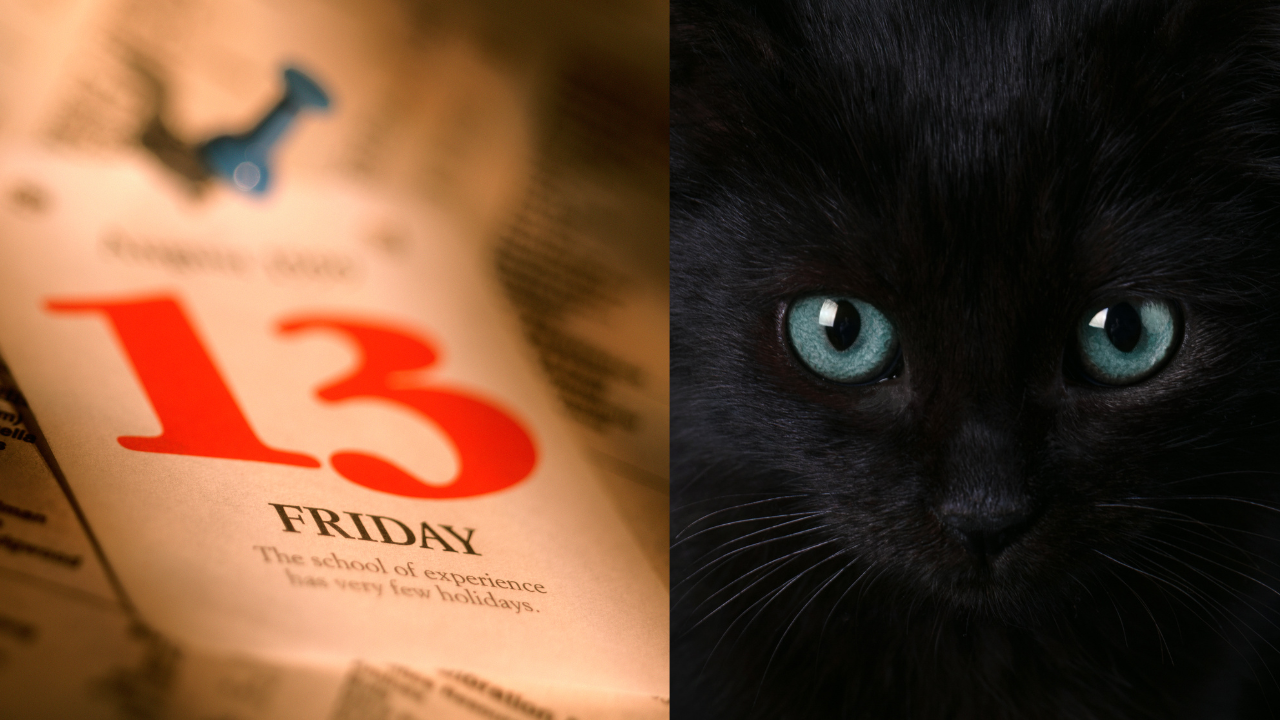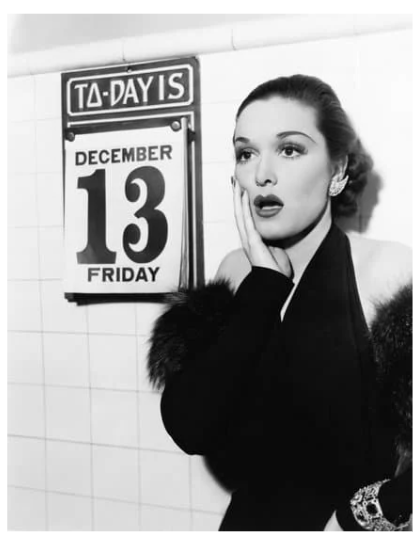We have at least one Friday the 13th in every calendar year. On that day, people cannot help but nurse the feeling that something really bad would happen. It’s commonly assumed that Friday the 13th is a day of misfortune. From breaking a mirror to meeting a black cat, people expect all manner of bad things to occur on this day. This superstition has grown stronger with time.
The thirteenth day of a month that happens to fall on Friday is considered to be very unlucky. Even some of the most hardened and cynical businessmen succumb to superstition when it rolls around.
Paraskevidekatriaphobia is the term for a fear of this date, but just what are the origins of Friday the 13th that have paraskevidekatriaphobia looking fearfully over their shoulders?
So, what’s the history behind this mysterious superstition of Friday the 13th? We’ve done some digging around, and the backstory is worth diving into.
Why The Number 13?
It is historically believed that something is fundamentally wrong with the number 13. According to speculations, this belief has something to do with the Code of Hammurabi.
But in an actual sense, the Code of Hammurabi thing was only a mistake. As it was later discovered, a translator simply left out the thirteenth law in the transcriptions. Therefore, what was initially perceived as an evil thing turned out to be plain old human error!
Superstitions of this nature have been common even among the greatest minds. For instance, the renowned Austrian-American composer Arnold Schoenberg, was so scared of the number 13. Arnold’s fear was so great that he decided to leave out the 13th measure in several of his subsequent compositions.
There were also reports that he was afraid of dying at an age or year that was a multiple of 13. He finally passed away at age 76 because a colleague suggested it might be a bad year for him since 7 plus 6 equals 13.
Friday has always been viewed as a dark day, according to several cultures and religions. Some Christians still consider Friday to be a day of misfortune because Christ was crucified on a Friday.
Centuries later, renowned figures such as George Chaucer and Robert Greene added fuel to the flame by reproducing their own superstitions by publicly denouncing that day. Funny enough, they never gave any reasons for their actions.
With a lot of people throwing their weight behind the denouncement of Friday, it is easy to see why Friday seems to generate a lot of resentments.
Origin of Friday The 13th
One of the oldest origins of this purportedly unlucky day is rooted in Norse mythology. When the Norse and Germanic tribes took up Christianity, they banished Frigg/Freya, the fertility goddess for whom Friday is named, to the mountains and labelled her a witch.
For centuries since then, Freya met with 11 other witches and the devil on Friday to hatch evil plans for the coming week. The combination of the 13 members of the coven meeting on that day came to be associated with misfortune.
Tradition at the time held that Friday and the 13th were incredibly unlucky occasions on their own, so the combination of the two, Friday the 13th, was considered the unluckiest day of all.
The ominous connotations for the 13th have also been connected to the thirteenth, and last guest to arrive at a dinner. Norse mythology holds that Loki the trickster god was an uninvited 13th guest at a feast of the Norse gods.
He instigated a chain of events that eventually saw Baldur, the god most beloved of gods and men alike, wind up dead. Too, the 13th guest at one of the most significant events in Christianity, the Last Supper, was Judas Iscariot. Christ, whom Iscariot betrayed, was crucified on a Friday.
In the 20th century there’s another superstition frenzy surrounding Friday the 13th. Thomas Lawson’s book “Friday, the Thirteenth” is the sole culprit. According to the New York Times, people became strangely afraid of this supposed day of misfortune.
Little did we know that decades later, the media would corroborate this superstition by promoting movies such as the iconic “Friday the 13th” horror series. The view of Friday the 13th may not go away anytime soon because there are many superstitious people in America. About 25% of Americans believe in one superstition or another.
Final Words
Is Friday the 13th actually reserved as a day for bad things to happen? The answer is No! Friday the thirteenth is what it is today because, long ago, some people painted it to be so. The media has also promoted this skewed perception. This day can mean anything to you. It all depends on what you believe.


